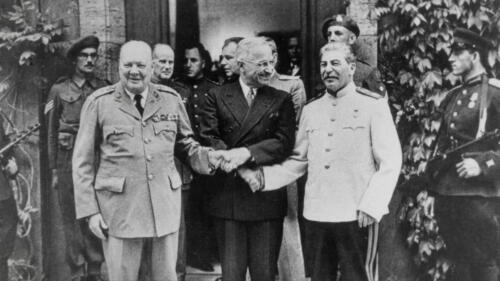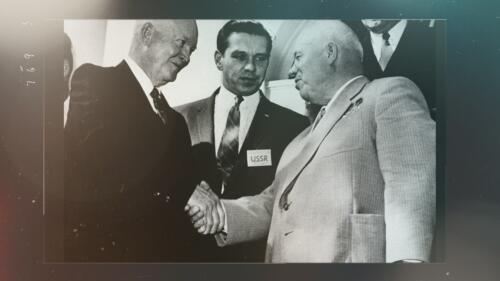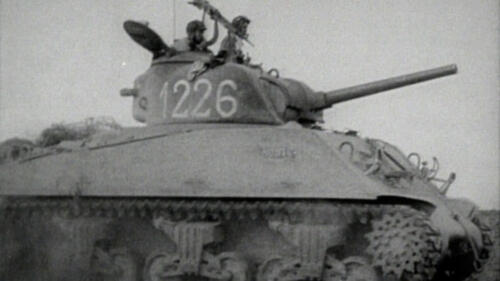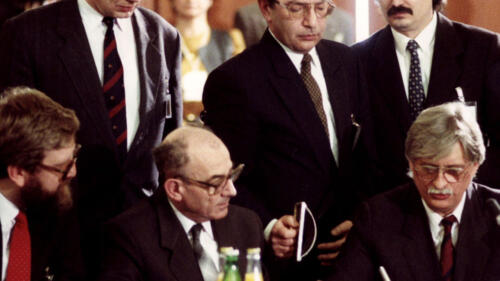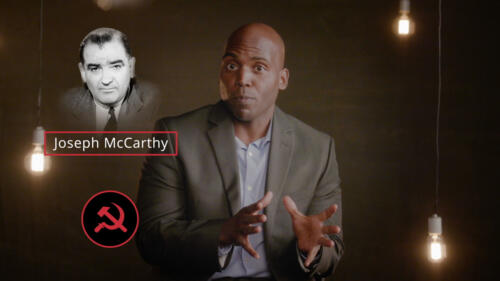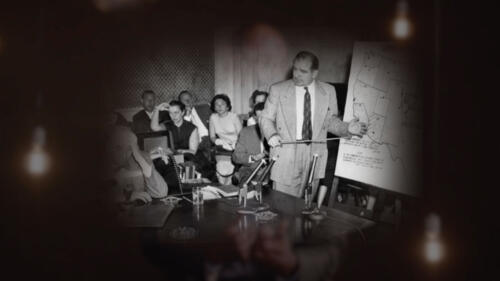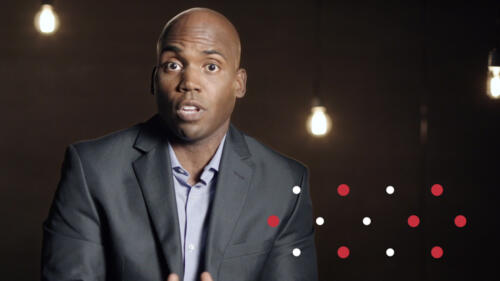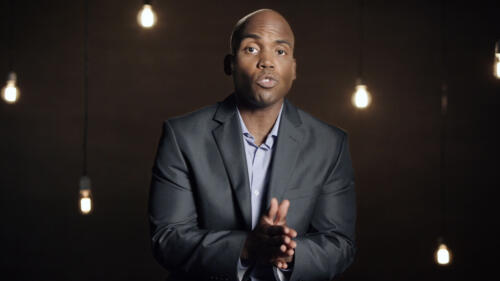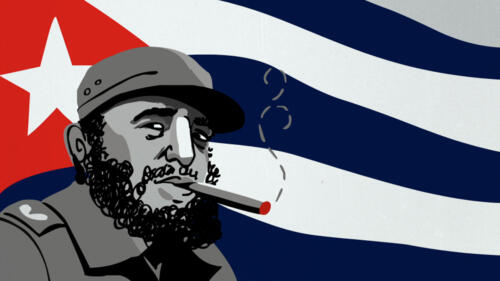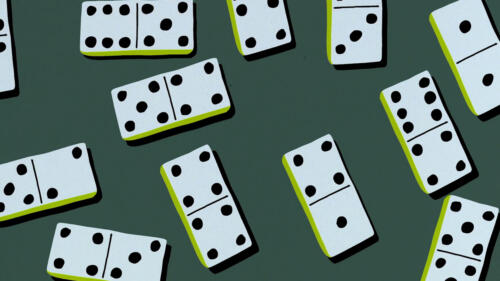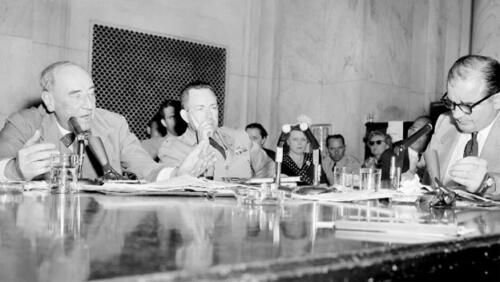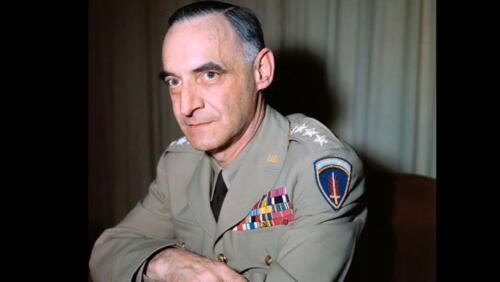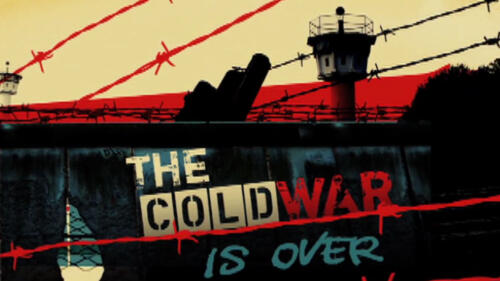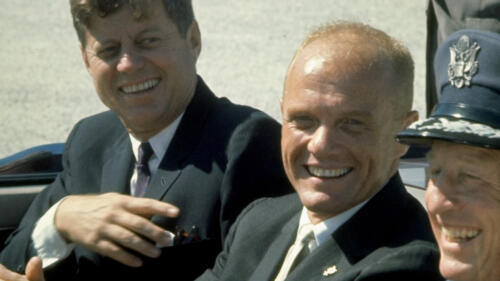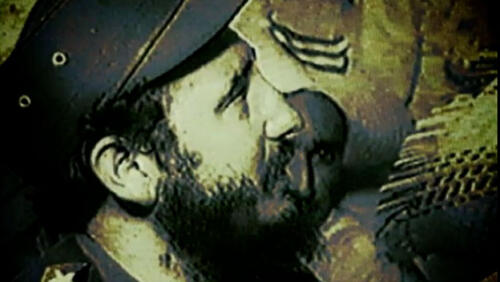Cold War
The Cold War rivalry between the United States and the Soviet Union lasted for decades and resulted in anti-communist suspicions and international incidents that led the two superpowers to the brink of nuclear disaster.
Featured Overview
Featured Overview
Learn how the Truman Doctrine marked the beginning of the Cold War, how it shaped America's attitude towards communism and how it shifted its foreign policy on interventionism with its involvement in the Mediterranean after World War II.
4:46m watch

AP Photo
Featured Overview
Featured Overview
Learn how the Truman Doctrine marked the beginning of the Cold War, how it shaped America's attitude towards communism and how it shifted its foreign policy on interventionism with its involvement in the Mediterranean after World War II.
4:46m watch
Start Here
Start Here

American and British pilots ferried some 2.3 million tons of supplies into West Berlin on a total of 277,500 flights, in what would be the largest air relief operation in history.

These are the steps that brought the United States and Soviet Union to the brink of nuclear war in 1962.

Reagan's words reflected a shift that was underway as Soviet reforms and protests were pressuring the East German government to open barriers to the West.

Amid an escalating arms race, civil defense drills offered comically simple strategies for surviving an atomic attack.
Army‑McCarthy Hearings
Army‑McCarthy Hearings
Army-McCarthy Hearings
On June 9, 1954, two-thirds of the way into the 36-day televised Army-McCarthy hearings in which Sen. Joseph McCarthy argued that the U.S. Army was harboring communists, the investigation hits a turning point. When Joseph Welch, the Army's special counsel, accuses McCarthy of having "no sense of decency," the tide of public opinion turns and McCarthy's career is eventually ruined.
1:02 watch
3 Cold War Close Calls
3 Cold War Close Calls
Explore All Related Topics
Explore All Related Topics

How four squabbling heroes helped launch the Marvel universe and usher in a new era for comics.
An inside look at the dark art of spycraft—from the Frankenkitty to the umbrella gun, we uncover the deadliest spy weapons ever deployed.
10:08m watch

These standout titles don’t just recount battles.

It ushered in the era of high-speed jet combat.

The first five nations to build atomic bombs became part of the 'Nuclear Club;' others have since gained weapons, despite global treaties.

Though it only aired once, the so-called “Daisy” ad played on fears of nuclear war in the race between Lyndon B. Johnson and Barry Goldwater.

The Manhattan Project’s Trinity test—the first atomic bomb detonation—led to infant deaths, cancer and decades of health problems.

Once a traveling shoe salesman, amateur physicist Lewis Strauss spurred the hydrogen bomb’s development—and became Robert Oppenheimer's nemesis.

The theoretical physicist read Sanskrit, loved horseback riding in New Mexico and was targeted during the Red Scare.

NATO invoked its Article 5 military commitment for first time after 9/11.

A proxy culture war was fought between East and West Germany. The unlikely weapon? Animals.

Hollywood blacklisted these screenwriters, producers and directors for refusing to testify before the House Un-American Activities Committee.

The Soviet Union, founded in 1922 on Marxist-socialist principles, became one of the biggest and most powerful nations in the world—before its fall and dissolution in 1991.

The pledge, as recited by U.S. schoolchildren, wasn’t standardized until World War II, and didn’t contain “under God” until 1954.

Between 1946 and 1958 the United States detonated 23 nuclear weapons on the tiny, remote ring of islands that make up Bikini Atoll.

As Nixon's Secretary of State, Kissinger both escalated the war—and tried to end it.

A temporary solution to organize Germany into four occupation zones led to a divided nation under the Cold War.

Declassified Cold War-era documents reveal how the Central Intelligence Agency used the epic novel <em>Dr. Zhivago</em> as a tool to undermine the Soviet Union.

Communist North Korea invaded South Korea in 1950 with the approval of Joseph Stalin and the promise of backing from China.

A 1968 attempt in Czechoslovakia to introduce liberal reforms was met with a violent invasion of Soviet-led troops.

The 1979 invasion triggered a brutal, nine-year civil war and contributed significantly to the USSR's later collapse.

The historic visit by President Richard Nixon to the People's Republic of China warmed relations between the two nations and substantially altered the balance of power between the U.S., China and the Soviet Union.

These eight men and women (among others) shared atomic secrets that enabled the Soviet Union to successfully detonate its first nuclear weapon by 1949.

Just weeks before the match, Soviet tanks and troops brutally crushed the short-lived Hungarian Revolution.

Grit and an eccentric coach both played a part when the American hockey squad beat the odds and defeated the Soviet team at the 1980 Winter Olympics.

Athletes have always been driven to win, but the advent of performance-enhancing drugs has resulted in stripped titles, ban from sports and more.

Stalin, Roosevelt and Churchill hammered out postwar matters like the creation of the United Nations, the fate of Eastern Europe and the 'dismemberment' of Germany.

After years of wartime rationing, American consumers were ready to spend money—and factories made the switch from war to peacetime production.

The Cold War-era law went into effect during a time when President Truman felt the nation was unprepared.

Though silent in public, President Dwight D. Eisenhower worked behind the scenes to discredit Senator Joseph McCarthy and his red-baiting tactics.

Bulgur biscuits and a granulated synthetic protein dubbed 'multi-purpose food' promised long shelf life—but not much else.

Was it detonated over the ocean—or did it disappear in the Canadian wilderness?

Amid reports of flying saucers swarming the nation's capital, the intelligence agency realized it needed a P.R. strategy.

Their designs were so radical that test flights over the Nevada desert often prompted a rash of 'UFO' sightings.
The Berlin Wall created two separate cities, two sides competing to be the best. And one of their biggest points of pride? Their zoos.
1:01m watch

Desperation drove ingenuity among East Germans determined to reach West Berlin.

The two leaders recognized in each other the desire to move past tense politics and end a nuclear standoff.

In the first half of the 20th century, U.S. educators shunned homework. The Soviet Union’s launch of Sputnik 1 changed that.

Double agent Dmitri Polyakov was one of the Cold War’s greatest spies—and likely the most damaging mole in the history of Soviet intelligence.

Call it a Cold War show of force.

These are the steps that brought the United States and Soviet Union to the brink of nuclear war in 1962.

How eight countries got bogged down in the Vietnam War's Cold War proxy battle.

A series of poor decisions and mistakes led to one of the worst foreign policy failures in American history.

During Operation Peter Pan, over 14,000 children became exiles with the help of the United States.

Melita Norwood was a great-grandmother when her espionage was finally revealed.

The project, dubbed "Project Iceworm," sounds like a setting for a James Bond spy movie—except it was real and the remains present a toxic mess

Amid an escalating arms race, civil defense drills offered comically simple strategies for surviving an atomic attack.

UFO reports in the capital's air space set headlines blaring across the nation about 'disks' and 'whatzits' and mysterious lights.

Reagan said he wanted to avoid nuclear Armageddon, critics called the Strategic Defense Initiative far-fetched and expensive.

The colossal power of the atomic bomb drove the world’s two leading superpowers into a new confrontation.

From Karl Marx to Joseph Stalin to Mao Zedong, the label of communism has been attached to these figures—and their often ruthless governments—through history.

Ronald Reagan may have spearheaded the build-up that led to the demise of the Soviet Union, but George H.W. Bush quietly saw it through.

Project Star Gate operated between 1972 and 1995 and attempted to offer, in the words of one congressman, "a hell of a cheap radar system."

Julius and Ethel Rosenberg were the only spies executed during the Cold War and some question whether their sentence was fair.

Are cats the purrfect spies? Turns out, not so much.

Karl Koecher and his wife lived a swinging, gold-plated life in New York City—all the while funneling classified information to the Soviets.

The article, as the cornerstone of a treaty signed in 1949, establishes solidarity among member states and has been invoked only once.

Mikhail Gorbachev introduced perestroika and glasnost as well-intentioned reforms to transform the Soviet Union.

'He just beat the hell out of me,' Kennedy said.

It was the first major crisis faced by the alliance, and it shook member nations deeply.

American and British pilots ferried some 2.3 million tons of supplies into West Berlin on a total of 277,500 flights, in what would be the largest air relief operation in history.

Michael and Robert Rosenberg became orphans when their notorious parents were executed for espionage. Then what happened?

For as long as the United States has had nuclear weapons, officials have struggled with how to transport the destructive technology.

The experiment of a 'continuous week' was shift work, on a colossal scale. And it failed.

Gas masks have been on the front lines of protecting both soldiers and civilians against weapons that are largely invisible and indiscriminately deadly.

Thanks to a Cold War strategy called ‘Atoms for Peace,’ President Eisenhower laid the foundations for the Iranian nuclear weapons program.

Reagan's words reflected a shift that was underway as Soviet reforms and protests were pressuring the East German government to open barriers to the West.

Some blame Mikhail Gorbachev for the collapse of the Soviet Union. But the economy and political structure were already in deep decay.
Discover the history of the Suez Canal and how Egypt's President Nasser, with the support of the Soviet Union, seized the canal from the British in 1956, causing an international crisis. See how President Eisenhower intervened to help restore order.
3:59m watch

First came the botched press conference. Then the actions of an angry, tired secret police officer who thought he had nothing to lose. Soviet reaction wasn't good.

The Palmer raids produced the violent arrests and deportations of suspected leftist radicals and anarchists in 1919 and 1920.

Every president since Kennedy has carried the nuclear football, but none have ever used it.

Was Edward VIII a Nazi sympathizer looking to overthrow his brother?

Here are the 10 most revealing highlights from the 2,800 JFK assassination files declassified in October 2017.

Do the documents released in 2017 shed new light on the 1963 killing—or launch new conspiracy theories?

Leaking water drums. Missing supplies. Dubious locations. What could go wrong?
Tensions between the United States and the Soviet Union resulted in the formation of key alliances that would endure throughout the Cold War.
3:11m watch

At the CIA, tools of the espionage trade have ranged from to clothing cameras to dragonfly drones.

Every TV and radio station in America was interrupted with an emergency message indicating nuclear war was imminent.

These are the places where top officials planned to evacuate to the event of a nuclear attack.
Historian Yohuru Williams explains how the fear of communist influences in America grew into a phenomenon known as "the Red Scare."
1:46m watch
Joseph McCarthy and his role in stoking fears of communism and its sympathizers during the 1950s.
1:59m watch

One of the most powerful empires in world history came to a surprisingly peaceful end when the Soviet Union dissolved into 15 independent states.

Egypt, France, Great Britain and Israel all duked it out in this pivotal Cold War-era crisis.
Take a crash course on the House Un-American Activities Committee (HUAC), a group that investigated the "loyalty" of those suspected of having Communist ties after World War II.
1:35m watch
Historian Yohuru Williams discusses key facts about the Hollywood Ten, a group of film directors, screenwriters and producers blacklisted for Communist affiliations in 1947.
1:41m watch
During Fidel Castro's tenure as President of Cuba, he survived an estimated 638 attempts on his life - and that's just from the CIA.
1:09m watch
Domino Theory, which governed much of U.S. foreign policy beginning in the early 1950s, held that a communist victory in one nation would quickly lead to a chain reaction of communist takeovers in neighboring states.
0:58m watch

During the height of the Cold War, the United States and the Soviet Union established a direct communications link to allow their leaders to contact one another in the event of a nuclear crisis or other emergency. This Washington-Moscow hotline has since featured in countless novels and films such as 1964’s “Dr. Strangelove,” but contrary […]

Now a part of the popular lexicon, the “CARE Package” is actually a registered trademark dating back 70 years to American humanitarian aid sent to war-torn Europe.

Explore some surprising facts about history’s worst nuclear accident.

What led to the failure of the April 1961 U.S.-orchestrated attack on Fidel Castro's Cuba?

Find out how table tennis became an unlikely tool in international relations.

From a British member of Parliament to a CIA counterintelligence officer, meet some of the Cold War personalities who betrayed their countries.

Forty years after the Concorde’s first commercial flight, read about the rival Soviet “Konkordski” and the Cold War race to build the world’s first supersonic jet.

During a two-week visit to address the United Nations in New York, Cuban revolutionary Fidel Castro stole headlines and courted controversy.

Get seven facts about the Berlin border crossing that served as an iconic symbol of the Cold War.

From an Old West camel corps to nuke-carrying train cars, learn the stories behind seven armed forces programs that didn’t go according to plan.

In 1960, one of the most notorious chapters in the Cold War began after American U-2 pilot Francis Gary Powers was shot down and captured during a spying mission over the Soviet Union.

Learn facts about the human-built canal that links the Eastern and Western worlds.

More than 5,000 people managed to escape over or under the the iconic Cold War symbol—which is all the more impressive considering the Berlin Wall was actually two walls.

Few symbols better captured the Cold War divide between western Europe and the Soviet bloc than the Berlin Wall, a concrete and barbed wire barrier that divided Germany’s largest city for nearly 30 years. As World War II wound to a close, Germany and Berlin were divided into four zones, each administered by one of […]

This controversial top-secret U.S. intelligence program brought Nazi German scientists to America to harness their brain power for Cold War initiatives.

1962’s Cuban Missile Crisis was not the only time the Cold War between the United States and the Soviet Union almost went hot.

Check out some surprising facts about this Cold War-era icon.

On October 27, 1962, U-2 pilot Rudolf Anderson Jr. was shot down during the Cuban Missile Crisis. His death may have saved the lives of millions.

Explore 10 surprising facts about the moment when the Cold War turned red-hot.
On June 9, 1954, two-thirds of the way into the 36-day televised Army-McCarthy hearings in which Sen. Joseph McCarthy argued that the U.S. Army was harboring communists, the investigation hits a turning point. When Joseph Welch, the Army's special counsel, accuses McCarthy of having "no sense of decency," the tide of public opinion turns and McCarthy's career is eventually ruined.
1:02m watch
Upon his return from commanding U.S. occupation forces in Germany, Gen. Lucius Clay holds a press conference on May 17, 1949, and fields questions about the growing tension between the United States and the Soviets over the division of Germany.
2:38m watch
For 30 years, the Berlin Wall was the defining symbol of the Cold War, separating families and keeping the people from jobs and opportunity in the west.
2:27m watch
The U.S. competition with the U.S.S.R. for technological dominance spurred the U.S. on to the first-ever landing on the moon.
2:58m watch
The Cold War is over, but what it left behind may surprise you.
2:32m watch
President Kennedy establishes his New Frontier with a challenge to venture into outer space. John Glenn became the first American astronaut to orbit the earth, one step in America's endeavor to land on the moon.
3:45m watch
Within the CIA, the Bay of Pigs invasion of April 1961 was regarded as the "perfect failure."
1:41m watch

Called 'broken arrows,' these accidents came dangerously close to wreaking atomic devastation.

The Berlin Airlift was the name of an operation that carried supplies by plane to the Allied sectors of West Berlin over a Russian blockade in the late 1940s.

The Soviet Union officially collapsed on December 25, 1991, and split into several independent nations.

The Berlin Blockade was a 1948 attempt by Soviets to prevent U.S., British and French travel to their respective sectors of Berlin, which lay in East Germany.

The Red Scare was hysteria over the perceived threat posed by Communists in the U.S. during the Cold War era.

The Congressional Army-McCarthy Hearings, televised in 1954, revealed the combative methods of Wisconsin Senator Joseph R. McCarthy to a national audience.

In 1949 the United States and 11 other Western nations formed the North Atlantic Treaty Organization (NATO) amid the prospect of further Communist expansion. The Soviet Union and its affiliated Communist nations in Eastern Europe founded a rival alliance, the Warsaw Pact, in 1955.

Perestroika, the series of political and economic reforms meant to revive the stagnant 1980s economy of the Soviet Union, was developed by Mikhail Gorbachev.

The Space Race refers to the period of competition over space exploration between the U.S. and the U.S.S.R. during the Cold War.

The Cuban Missile crisis was a 13-day political and military standoff in October 1962 over Soviet missiles in Cuba.

Dean Acheson was an American statesman who shaped international policy after World War II with his contributions to the Truman Doctrine and the Marshall Plan.

On August 13, 1961, the Communist government of East Germany began to build a barbed wire and concrete “Antifascistischer Schutzwall,” or “antifascist bulwark,” between East and West Berlin. The official purpose of the Berlin Wall was to keep Western “fascists” from entering East Germany and undermining the socialist state, but it primarily served the objective of stemming mass defections from East to West. The Berlin Wall fell on November 9, 1989.

The Eisenhower Doctrine was a policy proposed by President Dwight D. Eisenhower in 1957 for the launch of new economic and military programs in the Middle East.

The U-2 Spy Incident was an international diplomatic crisis that erupted in May 1960 when the USSR shot down an American U-2 spy plane and imprisoned its pilot.

The Suez Crisis of 1956 began after Egypt nationalized the vital Suez Canal. Israeli, British and French forces responded by invading and attacking Egypt.

Nikita Khrushchev inaugurated the space age and ramped up Cold War tensions by way of the Cuban Missle Crisis during his tenure as premier of the Soviet Union.

The Limited Nuclear Test-Ban Treaty, signed by three nations in 1963, prohibited the testing of nuclear weapons in outer space, underwater or in the atmosphere.

Fidel Castro was a communist revolutionary who established the first communist state in the Western Hemisphere after leading an overthrow of the military dictatorship of Fulgencio Batista in 1959. During his tenure as president of Cuba (1976-2008), Castro survived multiple assassination attempts by the CIA.

The domino theory, a now-discredited Cold War idea, held that communism in one nation would spread communism into neighboring nations, like falling dominoes.

Joseph R. McCarthy, a U.S. senator from Wisconsin, is best known for his high-profile attempts to expose communists in the U.S. government during the 1950s.

Henry Kissinger, the nation’s 56th secretary of state, played a prominent role in influencing U.S. foreign policy on a global stage. He was awarded a Nobel Peace Prize in 1973 for his attempt to negotiate peace in the conflict in Vietnam, but his tactics were not without controversy.

The House Un-American Activities Committee (HUAC) was a committee of the U.S. House of Representatives that investigated allegations of communist activity in the U.S. during the early years of the Cold War (1945-91). It was abolished in 1975.

Détente (a French word meaning release from tension) is the name given to a period of improved relations between the United States and the Soviet Union that began tentatively in 1969 and took decisive form in 1972 when President Richard Nixon visited Secretary General of the Soviet Communist party Leonid Brezhnev in Moscow.

The Cold War rivalry between the United States and the Soviet Union lasted for decades and resulted in anti-communist suspicions and international incidents that led the two superpowers to the brink of nuclear disaster.

The Bay of Pigs invasion was a failed 1961 attack by the CIA during the John F. Kennedy administration to drive Cuba’s communist leader Fidel Castro from power.

An arms race occurs when countries increase their military resources to gain superiority over one another, such as the U.S. and Soviet Union in the Cold War.
